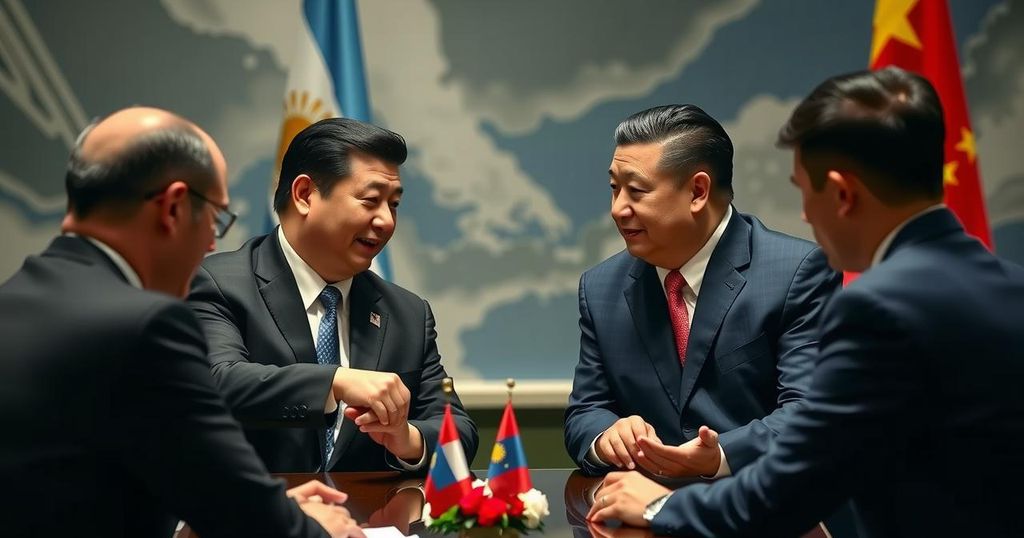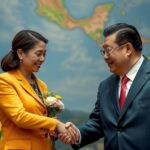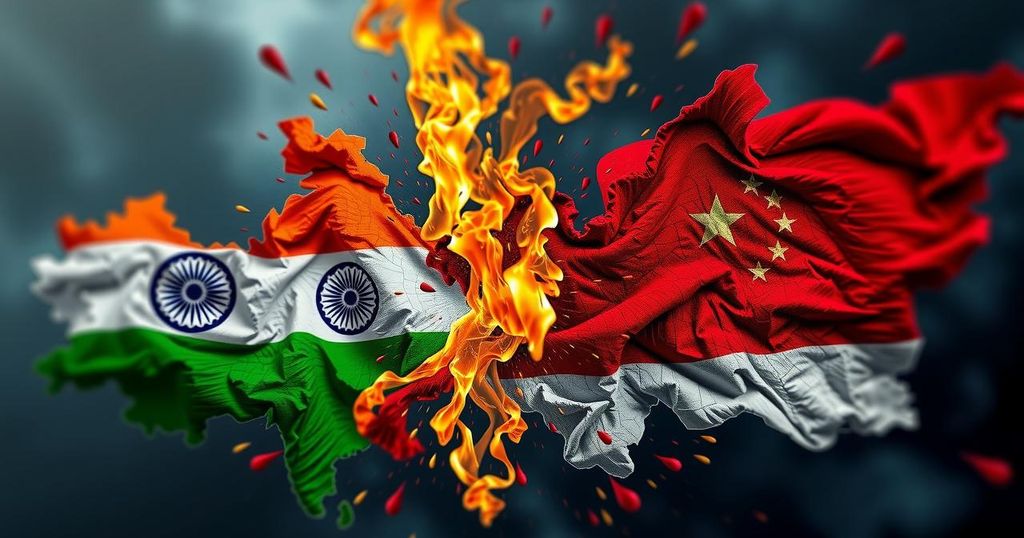Javier Milei’s Pragmatic Shift: Engaging China at the G20 Summit
Argentina’s President Javier Milei shifted from past criticisms of China to seeking pragmatic trade relations with President Xi Jinping during the G20 summit. His interactions revealed Argentina’s reliance on China amid economic struggles, including a recent gas export agreement with Brazil, despite previous confrontations with leftist leaders.
In a significant shift from his earlier confrontational stance, Argentina’s President Javier Milei embraced pragmatism during his inaugural discussions with Chinese President Xi Jinping at the G20 summit in Rio de Janeiro. Previously, while campaigning, Milei vehemently criticized leaders like Xi, labeling them as corrupt communists. However, at the summit, he engaged in cooperative dialogue to enhance trade ties with China, reflecting a necessary adaptation to Argentina’s economic realities. This pivot followed a preliminary agreement signed between Argentina and Brazil for the export of natural gas, signaling a strategic alignment with regional partners despite his earlier criticisms. Milei’s participation in the G20 summit was marked by his fluctuating approach; he previously opposed several international initiatives and withdrew from critical dialogues, yet ultimately aligned with a joint declaration under substantial global pressure. Observers noted his signing of the declaration despite initial resistance, indicating Argentina’s vulnerability in the face of economic challenges. This dramatic turnaround in Milei’s foreign policy, influenced by his interactions with Xi, underscores Argentina’s reliance on China for trade and economic sustenance, particularly in commodities like soybeans. The geopolitical landscape continues to shape Argentine policies. While Milei’s rhetoric aligns with a global far-right movement, critical analysts caution against isolating Argentina from key international partnerships. His dismissal of traditional alliances, particularly with left-leaning nations like Brazil, raises concerns regarding Argentina’s standing in global affairs. The unity showcased by Latin American leaders during the summit stands in stark contrast to Milei’s position, highlighting potential diplomatic tensions moving forward. The recent agreement to export natural gas to Brazil may serve to mitigate economic pressures but underscores the delicate balance Milei must maintain as he navigates both domestic expectations and international relations.
The article explores the recent actions of Argentina’s President Javier Milei at the G20 summit, illustrating his shift from an aggressive, populist rhetoric to a more pragmatic approach in international relations. Initially aligning himself with far-right ideologies, Milei, during his campaign, vehemently opposed dealings with countries he labeled as leftist or communist, specifically targeting leaders such as Xi Jinping and Brazilian President Luiz Inácio Lula da Silva. However, in light of Argentina’s ongoing economic struggles, his recent participation in G20 discussions reveals a necessary compromise with global powers and partners, particularly regarding crucial trade agreements.
In summary, President Javier Milei’s recent engagement with world leaders at the G20 summit signifies a notable transition in Argentina’s foreign policy. Initially adopting a combative stance toward leftist nations, Milei’s pragmatic shift toward enhancing trade with China reflects Argentina’s pressing economic needs. While this cooperation may stabilize relations, the potential for international isolation due to his prior rhetoric remains a concern. The necessity for collaboration amidst economic challenges underscores the complexities of Milei’s administration in balancing national interests with global diplomacy.
Original Source: apnews.com








Post Comment